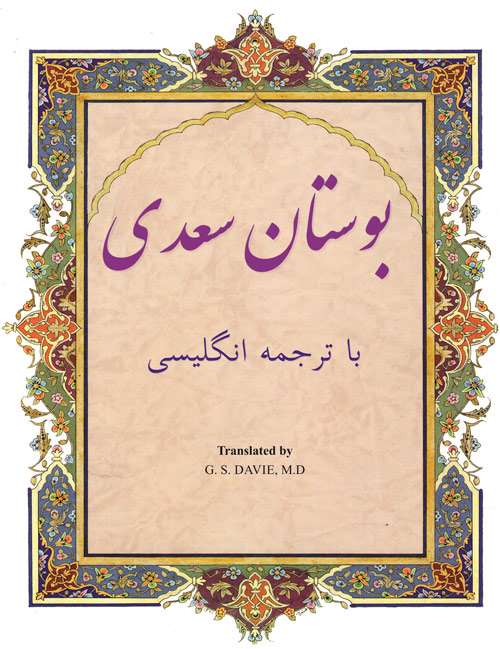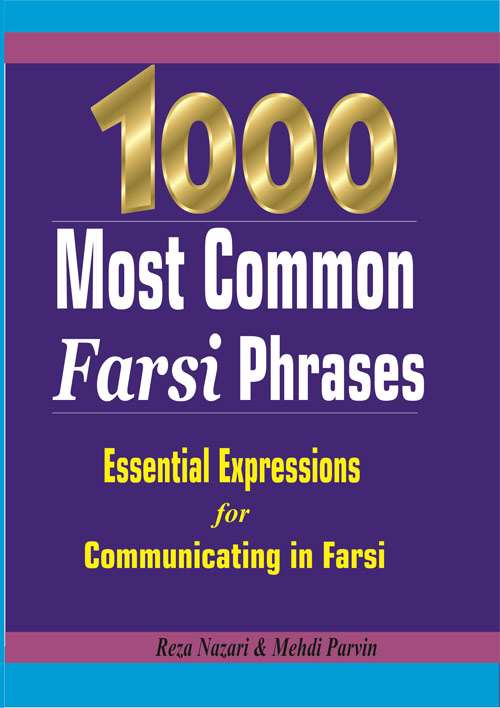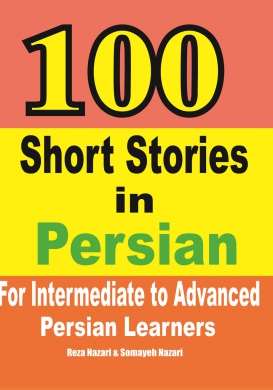
How some Súfís abused a certain Súfí, saying that he talked too much in the presence of the Shaykh. تشنیع صوفیان بر آن صوفی که پیش شیخ بسیار میگوید
صوفیان بر صوفیی شنعت زدند
پیش شیخ خانقاهی آمدند
Some Súfís abused a certain Súfí, and came to the Shaykh of the convent,
شیخ را گفتند داد جان ما
تو از این صوفی بجو ای پیشوا
And said to the Shaykh, “Demand justice for our souls from this Súfí, O Guide!”
گفت آخر چه گله ست ای صوفیان
گفت این صوفی سه خو دارد گران
He said, “Why, what is the complaint, O Súfís?” He (their spokesman) replied, “This Súfí has three annoying habits:
در سخن بسیار گو همچون جرس
در خورش افزون خورد از بیست کس
In speech he is garrulous as a bell; in eating he eats more than twenty persons;
ور بخسبد هست چون اصحاب کهف
صوفیان کردند پیش شیخ زحف
And if he sleep, he is like the Men of the Cave.” (Thus) did the Súfís march to war (against him) before the Shaykh.
شیخ رو آورد سوی آن فقیر
که ز هر حالی که هست اوساط گیر
The Shaykh turned his face towards that dervish, saying, “In every case that exists, take the middle (course).
در خبر خیر الأمور أوساطها
نافع آمد ز اعتدال أخلاطها
(It is stated) in Tradition that the best things are the mean (those between the two extremes): the (four) humours are beneficial through being in equipoise.
گر یکی خلطی فزون شد از عرض
در تن مردم پدید آید مرض
If by accident (any) one humour become excessive, disease appears in the human body.
بر قرین خویش مفزا در صفت
کان فراق آرد یقین در عاقبت
Do not exceed in (any) quality him that is thy yoke-fellow, for that will assuredly bring about separation (between you) in the end.
نطق موسی بد بر اندازه و لیک
هم فزون آمد ز گفت یار نیک
The speech of Moses was in measure, but even so it exceeded the words of his good friend.
آن فزونی با خضر آمد شقاق
گفت رو تو مکثری هذا فراق
That excess resulted in (his) opposing Khadir; and he (Khadir) said, ‘Go, thou art one that talks too much: this is a (cause of) separation (between us).’
موسیا بسیار گویی دور شو
ور نه با من گنگ باش و کور شو
O (thou who resemblest) Moses, thou art garrulous. Go far off, or else be dumb with me and blind!
ور نرفتی وز ستیزه شستهای
تو به معنی رفتهای بگسستهای
And if thou goest not, but remainest sitting (here) in despite (of me), thou art gone in reality and severed (from my company).”
چون حدث کردی تو ناگه در نماز
گویدت سوی طهارت رو به تاز
When suddenly you commit an act of (legal) impurity in the ritual prayer, it (the prayer) says to you, “Go speedily to purify yourself”;
ور نرفتی خشک جنبان میشوی
خود نمازت رفت بنشین ای غوی
And if you go not, you will be moving (exerting yourself) in vain; verily your prayer is gone beforehand (already), O misguided man!
رو بر آنها که هم جفت تواند
عاشقان و تشنهی گفت تواند
Go to them that are your mates, (them) that are enamoured of your discourse and thirsting for it.
پاسبان بر خوابناکان بر فزود
ماهیان را پاسبان حاجت نبود
One who keeps watch is superior to those who slumber: the (spiritual) fish have no need of one who keeps watch.
جامه پوشان را نظر بر گازر است
جان عریان را تجلی زیور است
Those who wear clothes look to the launderer, (but) the soul of the naked hath (Divine) illumination as its adornment.
یا ز عریانان به یک سو باز رو
یا چو ایشان فارغ از تن جامه شو
Either withdraw (and turn) aside from the naked, or like them become free from body-garments.
ور نمیتانی که کل عریان شوی
جامه کم کن تا ره اوسط روی
And if you cannot become wholly naked, make your garments less, so that you may tread the middle path.
Special Offers
by: Reza about (category: Masnavi)
















What people say about "How some Súfís abused a certain Súfí"?
No one replied yet.